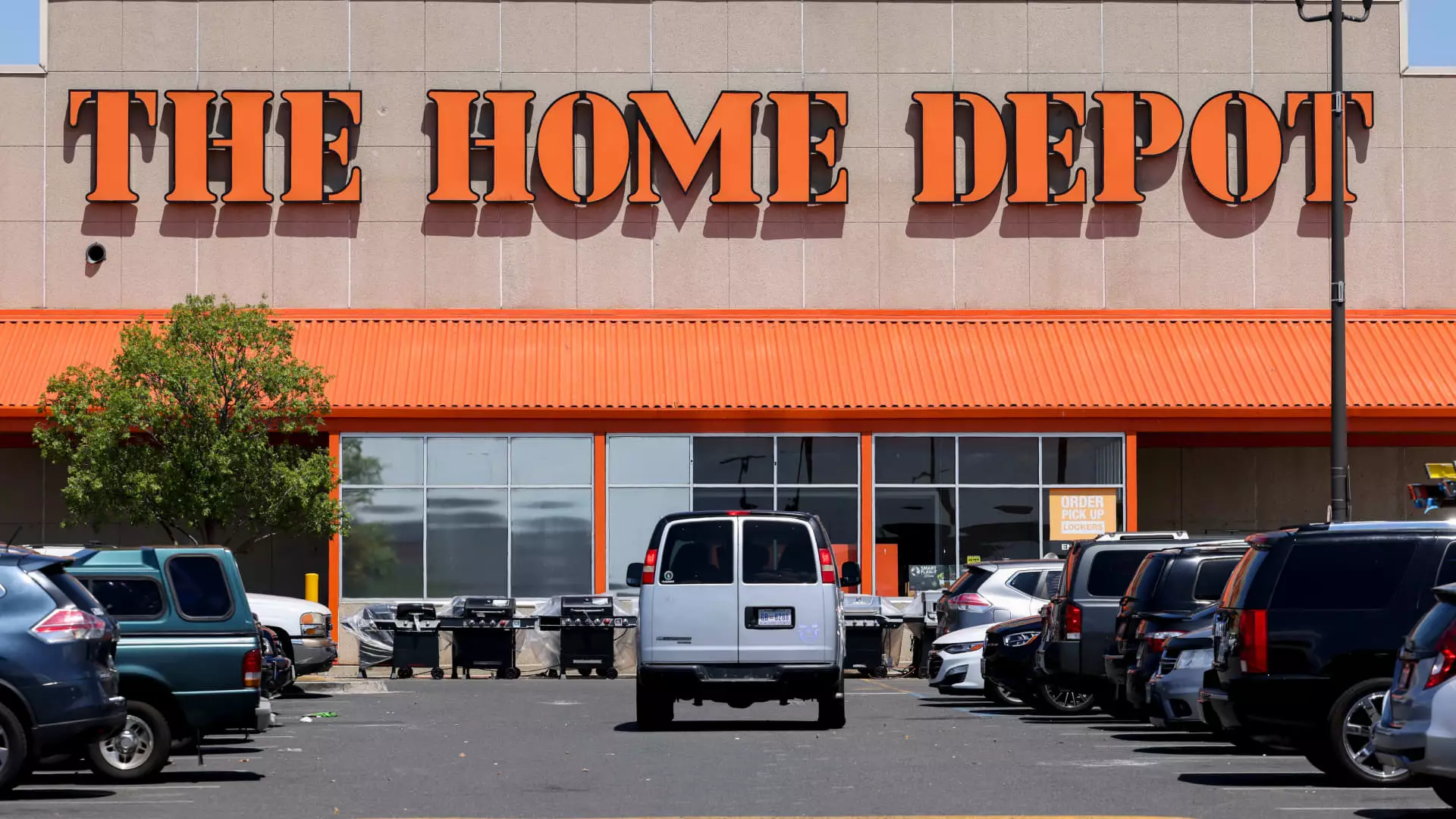In the ever-evolving retail sector, investors constantly seek to navigate the complexities of stock performance. Recently, analysts from Telsey Advisory Group and Citi have provided differing outlooks on two major retail players: Home Depot and Best Buy. While the former exudes optimism with an upgraded stock rating, the latter grapples with the potential implications of external economic pressures. This article delves into the contrasting narratives surrounding these two retail giants, exploring the factors that shape their market positions and future prospects.
Telsey Advisory Group’s recent upgrade of Home Depot’s stock to a “buy-equivalent outperform” reflects a robust confidence in the company’s projected performance. The research firm has adjusted its price target from $360 to $455 per share, signaling expected growth of nearly 14% from Thursday’s closing price. Analysts are optimistic despite anticipating a “continued softness” in third-quarter sales, as the company prepares to release its quarterly results soon.
Key to this optimism are forecasted improvements in earnings and revenue growth by 2025, driven largely by favorable external conditions such as declining mortgage rates and ongoing recovery from hurricane damage. The backing of these catalysts—coupled with thorough analysis of Home Depot’s fundamentally strong business model—leads Telsey analysts to believe that the company will continue to enhance its market share in the home improvement sector. Their predictions highlight the increasing prospects for Home Depot’s professional segment, which caters to larger and more intricate projects.
From a macroeconomic perspective, Home Depot’s positioning benefits from a backdrop of economic resilience and cooling inflation pressures. The recent easing of monetary policy by the Federal Reserve, marked by an interest rate cut, is expected to stimulate the housing market by making mortgages more affordable. This shift is particularly advantageous for new homeowners intent on renovation projects, thereby increasing Home Depot’s customer base.
In stark contrast to Home Depot’s upbeat outlook, Best Buy faces considerable headwinds, as highlighted in Citi’s recent adjustment of the retailer’s price target from $115 to $109, while maintaining a buy rating. The analysts point to President-elect Donald Trump’s administration’s plans for new tariffs on Chinese imports as a looming challenge for Best Buy, which significantly relies on electronics manufactured overseas, particularly in China. Such tariffs could inflate costs and deter sales, casting a shadow over the company’s current momentum.
However, not all news is bleak for Best Buy. Citi proposes that the ongoing shift towards artificial intelligence (AI) in consumer technology presents a compelling opportunity for the retailer. As customers seek to enhance their devices, Best Buy has the potential to benefit from an uptick in business driven by a tech replacement cycle. Upgrading smartphones and computers could offset some of the pressures exerted by tariffs, albeit this remains contingent upon broader economic trends.
Despite a recent dip in Best Buy’s stock, driven predominantly by tariff jitters, there is still a belief among analysts that the retailer will remain well-positioned to capitalize on declining interest rates should the housing market rebound. Such a resurgence could lead to a surge in sales of larger ticket items such as electronics and appliances, mirroring the opportunities that Home Depot is likely to enjoy in the renovation segment.
The contrasting trajectories of Home Depot and Best Buy illuminate the unpredictability of the retail landscape. Home Depot’s stock upgrade, underpinned by solid fundamentals and external tailwinds, indicates confident growth ahead. Conversely, Best Buy faces challenges in the form of tariff implications, even as it leans on emerging technology trends to drive sales.
Investors must remain vigilant in these turbulent times. While immediate results from both companies are on the horizon, it is critical to consider long-term projections and economic conditions that may significantly alter the landscape. Home Depot’s resilience and growth opportunities juxtaposed with Best Buy’s vulnerabilities warrant a careful assessment of potential risks and rewards. As the broader market continues to evolve, the narratives surrounding these two retail giants will remain vital points of analysis for investors looking to optimize their portfolios in an uncertain economy.

